Principal Investigators
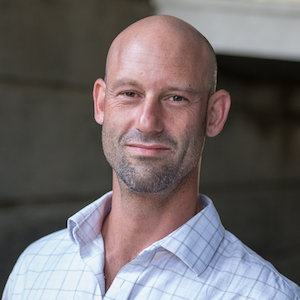 ELIAH ARONOFF-SPENCER, MD/PhD, UCSD Faculty , Co-Director of DH
ELIAH ARONOFF-SPENCER, MD/PhD, UCSD Faculty , Co-Director of DH
The goal of Dr. Spencer’s research is to develop informatics and diagnostic solutions for medical care in resource-limited settings. In San Diego he coordinates the informatics component of the UCSD/UEM Medical Education Partnership Initiative (MEPI); a collaborative effort between the divisions of Infectious Diseases and Bioinformatics at UCSD and the University Eduardo Mondlane, Maputo Mozambique, to improve medical education and laboratory capacity in Mozambique(mepimoz.org, id.ucsd.edu). Research in his own lab includes yeast based diagnostics, MEMS and portable “lab-in-a-box” technologies integrated via mobile devices.
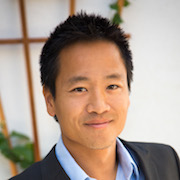 DR. ALBERT YU-MIN LIN, PhD, UCSD Research Scientist, Co-Director of DH
DR. ALBERT YU-MIN LIN, PhD, UCSD Research Scientist, Co-Director of DH
Dr Albert Lin is a Research Scientist at the University of California, San Diego and an Explorer of the National Geographic Society in the field of technology enabled exploration. His research interests span topics including citizen science, crowdsourcing, human centered computing, GIS, big data, satellite imaging, and expedition based research. Throughout his carrier Dr Lin has founded and directed numerous programs including the UC San Diego, National Geographic Engineers for Exploration Program, and the Distributed Health Labs. The effort he is most known for, the Valley of the Khans Project, is a hight tech ground, aerial and satellite based remote sensing non-destructive search for the tomb of Genghis Khan that was featured in a 1-hour National Geographic Documentary film, “the Forbidden Tomb of Genghis Khan”. His team’s innovative approach towards massive satellite data analytics through crowdsourcing (recognized with the 2011 United States Geospatial Intelligence Foundation Academic Achievement award) has been emulated for applications ranging from emergency response to humanitarian monitoring and led to the formation of California based Tomnod Inc. where he served as co-Founder and Chairman of the Board of Directors until 2013 when the company was acquired by the global satellite imagery provider Digital Globe. He now serves on the Board of Directors of the Digital Globe Foundation. In 2011 he and Dr. Spencer launched the Distributed Health Lab to explore how networked individual action could collectively map trends in personal, population and environmental health (i.e. heavy metals in water). Albert’s work has been featured in outlets including the Washington Post, BBC, NPR, ABC news, TEDx, Wired magazine, Gizmodo, al Jazeera, National Geographic, Newsweek (cover story), and the Harvard Business Review.
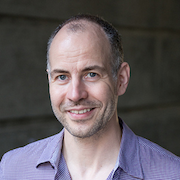 DR. STAAL A. VINTERBO, PhD, UCSD Faculty
DR. STAAL A. VINTERBO, PhD, UCSD Faculty
Dr. Vinterbo’s research focus lies mainly in the combination of privacy research and machine learning. One can think of dissemination of information derived from data as answering queries about the data. Such queries can range from requesting simple counts of records matching a particular pattern, to requesting complex statistics, predictive models and even derived data sets. Unfortunately, in order to protect privacy, query results must in general be altered, with a resulting loss of usefulness. Furthermore, if data contains private information, one cannot expect to provide meaningful answers to an infinite amount of different queries without at some point divulging private information. Consequently, a loss in privacy is incurred over time, even if each individual query response is privacy preserving.
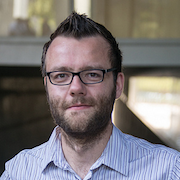 GERT LANCKRIET, PhD, UCSD Professor
GERT LANCKRIET, PhD, UCSD Professor
Prof. Gert Lanckriet is an Associate Professor in the Department of Electrical and Computer Engineering at the University of California, San Diego. His research focuses on machine learning, big data analytics and crowdsourcing, with applications to music and multimedia information retrieval, and personalized, mobile health. As founder and director of UCSD’s Computer Audition Lab, he developed state-of-the-art technology for music and multimedia analysis, search and recommendation. His health informatics work focuses on leveraging ubiquitous, wearable sensors with large-scale data analytics, to monitor and analyze personal health. Besides an avid drummer, he is an Alfred P. Sloan Fellow and was named one of the 35 top young technology innovators in the world by MIT Technology Review.
Business Development
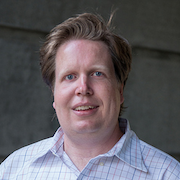 PETER PREUSS
PETER PREUSS
Peter Preuss is currently at the UCSD Rady School of Management pursuing his MBA. He spends much of his time looking at the commercial applications for new technologies and consulting with startup companies in San Diego. Peter has a background as a software engineer and an interest in wireless health applications. He brings a unique mix of engineering and business to the project.
Medical Advisory Board
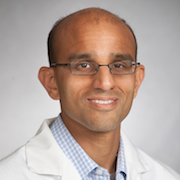 DR. SANJAY MEHTA, MD
DR. SANJAY MEHTA, MD
Dr. Sanjay Mehtais one of the solid organ transplant infectious disease faculty at UCSD. He also maintains an HIV-HCV co-infection clinic and is an Assistant Director of the Clinical Microbiology Lab at UCSD. He is also one of the Faculty Advisors for the UC Haiti Project. His research interests include tropical infectious diseases and their interactions with HIV, and in particular the immunology of Leishmaniasis. He has developed in vivo and in vitro methods to more rapidly screen anti-Leishmanial therapeutics, and has worked on vaccine development for the parasite. He also has a strong interest in viral evolution, and how HIV evolves within an individual and a population. Understanding how the virus evolves provides knowledge about the pathogenicity, transmission and spread of the HIV. In particular, Dr. Mehta is working on how phylogenetic models can help us learn about ongoing epidemics, and predict how they may spread.
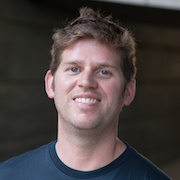 MIKE PREZIOSI, MD
MIKE PREZIOSI, MD
Prior to starting his infectious disease fellowship, Dr. Preziosi served as the first clinical director of the collaboration between UCSD and Universidade Eduardo Mondlane (UEM). He has worked extensively at Maputo Central Hospital (MCH) in Maputo, Mozambique, and has an extensive network of friends and colleagues there and at UEM. Mike became interested in non-typhoidal Salmonella (NTS) through project he designed to study bacteremia at MCH. NTS is the most common cause of bacteremia at MCH and hospitals throughout sub-Saharan Africa, and there is evidence to suggest that it has evolved to become more efficiently spread by humans. Through a combination of traditional and molecular epidemiology techniques, he hopes to further elucidate this hypothesis, while continuing to work closely with his colleagues from Maputo to help improve infrastructure for clinical research in Mozambique.
Engineering
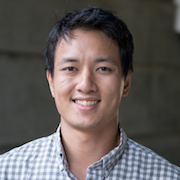 ANDREW HUYNH, Chief Data Scientist, PhD Student, UCSD
ANDREW HUYNH, Chief Data Scientist, PhD Student, UCSD
Andrew Huynh is a graduate student in the Computer Science and Engineering department at the University of California, San Diego. His research focuses on combining distributed sensor networks, be it from crowd sourcing or physical sensors, with machine learning and statistical analysis to understand and visualize the world in new, innovative ways. As a data scientist on the Valley of the Khans Project, Andrew built a platform that enables computers to recognize archaeological sites using satellite imagery. Dr. Albert Lin and the National Geographic Society are using this platform for a crowd-sourcing project in Mongolia to find archaeological anomalies and to build a better map to guide future exploration in the region. NSF has recognized Andrew for his efforts, awarding him both “Judges Choice” and “Community Choice” at the annual IGERT Poster and Video Competition.
 SEAN PATNO, Chief Engineer
SEAN PATNO, Chief Engineer
Sean Patno is an all around engineer. He has almost ten years of experience writing software applications ranging from mobile games to tactical software used by the military. He has worked for large corporations, agile startups, and academic institutions. As an undergraduate, he studied mechanical engineering. Sean spends most of his time working on mobile and embedded software, working additionally wherever he is needed.
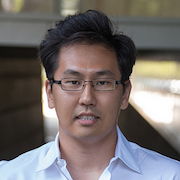 BEKE CHULUUN, Oasis Project Manager
BEKE CHULUUN, Oasis Project Manager
Beke was born and raised in Mongolia, at the age of 17 he migrated to the US. He quickly adapted to the American lifestyle despite an initial language barrier. At UCSD, Beke developed a passion for science and engineering and majored in Biochemistry/Chemistry. Currently, he is driving the development of the Oasis project and carrying out a field exploration in Mongolia. He will be attending graduate school at the UCSD Nanoengineeirng department starting Fall of 2013. Beke hopes to bring cheap and reliable technological advances to the developing nations.
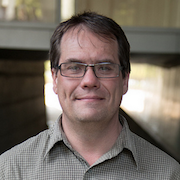 ROGER JENNINGS, Chief Electrical Engineer
ROGER JENNINGS, Chief Electrical Engineer
Roger brings decades of experience to the Distributed Health team. He has become invaluable in the design of all the electronics used in the assortment of devices under development. Roger’s selfless hardwork and dedication to the Distribution Health mission have meant the difference in delivering quality results.
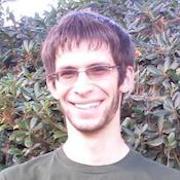 GEOFFREY BUGAISKY, Software Engineer, Undergraduate Student
GEOFFREY BUGAISKY, Software Engineer, Undergraduate Student
Geoffrey is a fifth year undergraduate student at UCSD. He started at UCSD studying Biology, but became interested in studying the applications of Computer Science to the field of Biology, and switched to majoring in Bioinformatics. Concurrently with his studies, he is assisting in the development and upkeep of KEEP.
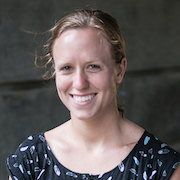 KAT ELLIS
KAT ELLIS
Kat graduated from the University of Southern California in 2010 with a B.S. in Electrical Engineering. She earned her M.S. in Electrical and Computer Engineering from the University of California, San Diego in 2012 and is currently pursuing a Ph.D. in the same field. Her research interests are in machine learning with applications to health and exercise.